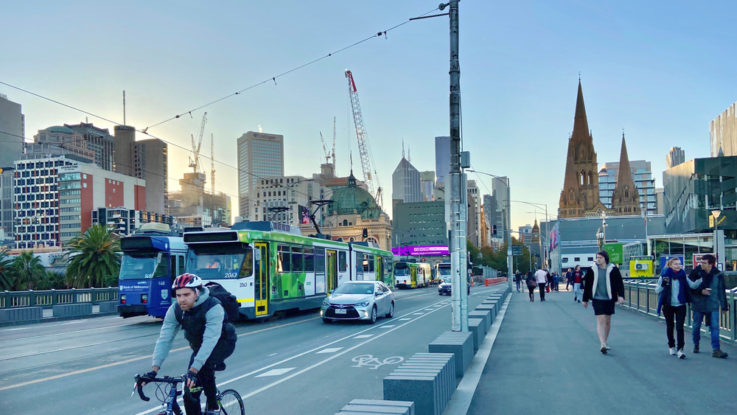
The University of Melbourne, Kapsch TrafficCom, and the Victorian Department of Transport are launching a new traffic management system in Melbourne, Australia with the goal of easing congestion; improving road safety for cars, pedestrians and cyclists; and reducing emissions from traffic jams.
Majid Sarvi, Professor of Transport Engineering at the University of Melbourne, expects the corridor will provide a model for cities around the world to reduce the costs of urban congestion.
“In Melbourne alone, 492 people lost their lives in crashes at urban intersections – with more than half of these being pedestrians, cyclists or motorcyclists – between 2006 and 2019,” Sarvi said. “Our Intelligent Corridor will use the latest technology to better manage traffic and make our roads safer for everyone.”
The ‘Intelligent Corridor’ will cover a 2.5 kilometer (~ 1.55 mile) stretch of one of the city’s busiest roads. Its traffic management system will use sensors, cloud-based AI, machine learning algorithms, predictive models, and real time-data capture to improve traffic management. Over the next three years, the project will use live and historical data feeds from different types of traffic sensors to fine-tune the system.
The traffic management system will integrate within the Kapsch Smart Intersection, the Toyota/Lexus Australia/Kapsch C-ITS Connected Vehicle Zone, and various existing sensors to provide better traffic detection and more robust data collection to improve operators’ situational awareness, enabling them to make more informed decisions.
“The City has faced an increasing volume of road users over the past few decades, leading to delays and an increasing number of accidents. Now, academic researchers, industry, and the government will draw on connected transport technology to explore better outcomes and solve issues of safety and congestion to create a safer, cleaner, and smarter transport future for Melbourne,” said Director of Signal Services with the Victorian Department of Transport, Niloo Karimi.